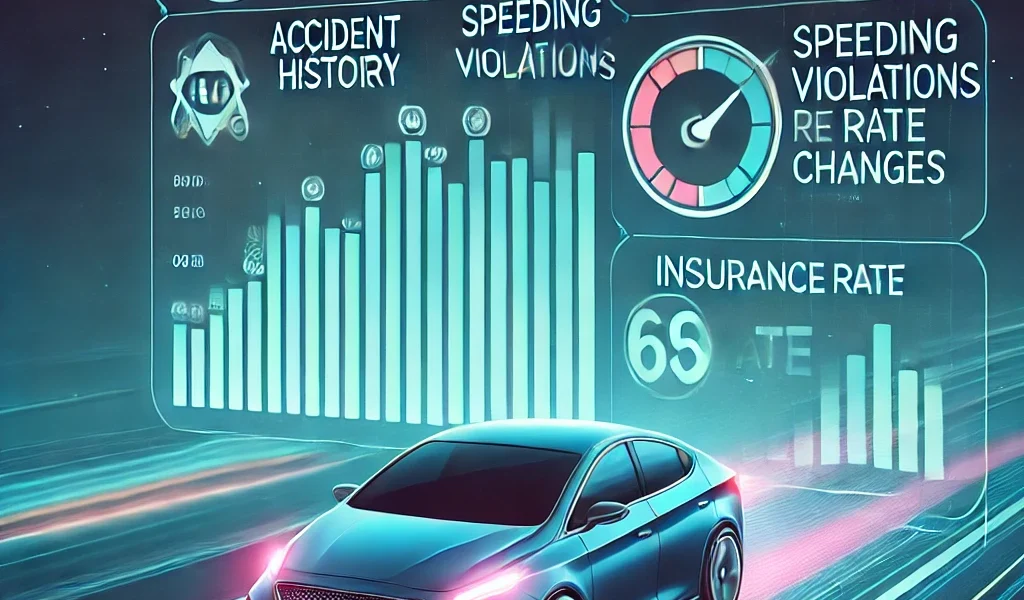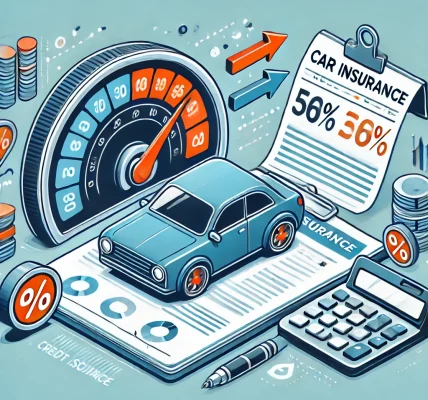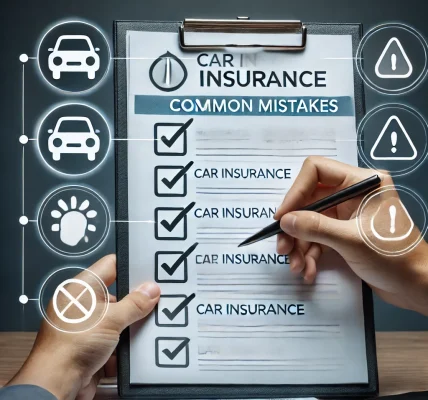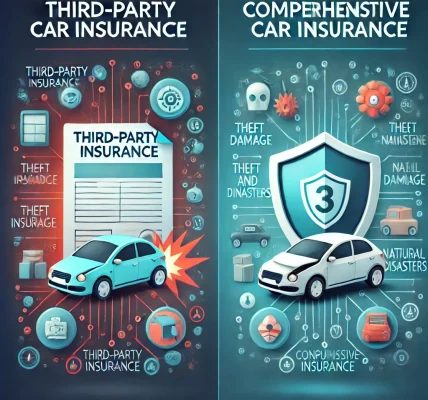Introduction
Your driving history plays a crucial role in determining your car insurance premiums. Insurance companies assess your past driving behavior to predict your likelihood of filing a claim in the future. A clean driving record can result in lower premiums, while a history of accidents, traffic violations, or claims can lead to higher rates.
Understanding how your driving history impacts your car insurance rates can help you take the necessary steps to maintain a clean record and secure better insurance deals. This guide will provide an in-depth analysis of the key factors insurers consider, how they affect your premiums, and tips to lower your insurance costs.
How Insurance Companies Evaluate Your Driving History
1. Accident History
One of the most significant factors insurers consider is your accident history. If you have been involved in at-fault accidents, insurers view you as a higher-risk driver, leading to increased premiums.
- At-fault accidents: These accidents have the most impact on your rates because they indicate a higher likelihood of future claims.
- Not-at-fault accidents: While these may not increase your premiums significantly, some insurers still consider them when assessing risk.
- Hit-and-run incidents: If you were found responsible for a hit-and-run accident, expect a substantial increase in your premiums or even policy denial.
Tip: Consider adding accident forgiveness to your policy if your insurer offers it. This can prevent a premium increase after your first at-fault accident.
2. Traffic Violations and Tickets
Traffic violations and moving violations can increase your car insurance rates, as they indicate risky driving behavior.
- Speeding tickets: The more severe the violation (e.g., excessive speeding), the higher the impact on your premium.
- Running red lights or stop signs: These violations show reckless driving habits and can lead to higher insurance costs.
- Reckless driving and DUI/DWI: These are serious violations that can lead to dramatically increased premiums or even policy cancellation.
Tip: Drive responsibly and consider taking a defensive driving course to remove minor violations from your record.
3. DUI/DWI and Its Consequences
Driving under the influence (DUI) or driving while intoxicated (DWI) is one of the most severe offenses in the eyes of insurance companies.
- Higher premiums: A DUI/DWI conviction can increase your premium by 50% or more.
- SR-22 requirement: Many states require drivers with a DUI to file an SR-22 form, proving they have the minimum required insurance coverage.
- Policy cancellation: Some insurers may refuse to renew your policy after a DUI conviction.
Tip: If you have a DUI on your record, look for insurers that specialize in high-risk drivers to find the best rates.
4. Claims History
Frequent claims can make you appear as a high-risk policyholder, leading to increased rates.
- Comprehensive and collision claims: Frequent claims for damages, even if they are not at-fault, can result in higher premiums.
- Small claims vs. major claims: Multiple small claims can raise red flags, just like one large claim.
Tip: If the damage is minor and repair costs are manageable, consider paying out-of-pocket instead of filing a claim to keep your record clean.
5. Lapses in Coverage
Insurance companies prefer consistent coverage history. If you have gaps in your insurance coverage, you may be considered a high-risk driver.
- Short-term lapses: Even a brief lapse can lead to higher rates.
- Long-term uninsured periods: Extended periods without insurance can significantly impact your ability to get affordable coverage.
Tip: Always maintain continuous coverage, even if you switch insurers or temporarily don’t drive.
How Your Driving History Affects Premiums
Good Driving Record = Lower Premiums
If you have a clean driving history with no accidents, violations, or claims, you are likely to receive:
- Discounts such as good driver discounts
- Lower overall premiums
- More insurance options
Poor Driving Record = Higher Premiums
If you have a history of accidents, violations, or claims, insurers may:
- Increase your premium rates
- Offer limited coverage options
- Require you to file an SR-22 or FR-44 (high-risk insurance certification in some states)
How to Improve Your Driving Record and Lower Your Insurance Rates
1. Drive Safely and Avoid Violations
Avoid speeding, aggressive driving, and other risky behaviors to maintain a clean record.
2. Take a Defensive Driving Course
Many insurers offer discounts to drivers who complete an approved defensive driving course.
3. Ask for Accident Forgiveness
Some insurers offer accident forgiveness programs, which prevent premium increases after a first at-fault accident.
4. Shop Around for Better Rates
If your current insurer has increased your rates, compare quotes from multiple providers to find the best deal.
5. Consider Usage-Based Insurance (UBI)
If you drive safely and infrequently, consider a UBI program where your rates are based on real-time driving behavior.
Conclusion
Your driving history is a key factor in determining your car insurance premiums. A clean record can lead to lower rates and discounts, while a history of accidents, violations, or claims can increase your costs. By understanding what insurers look for and taking steps to improve your record, you can save money and secure better coverage options.
If you have a less-than-perfect driving history, don’t lose hope. Many insurers offer options to help you rebuild your record over time. Drive responsibly, explore discounts, and shop around for the best rates to ensure you get the most affordable and suitable coverage for your needs.




